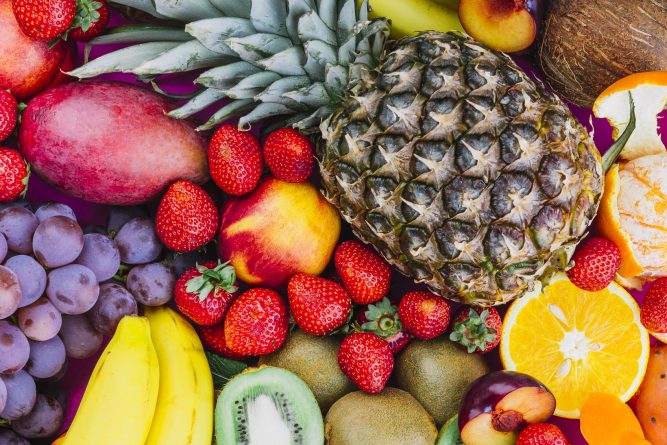Fruit is packed with vitamins, fiber, and natural sweetness. However, not all fruits are created equal when it comes to sugar content. Here’s the truth about high-sugar fruits!
Defining High-Sugar Fruits
High-sugar fruits are those that contain elevated levels of natural sugars, particularly fructose. While all fruits contain some amount of sugar, certain varieties stand out for their higher concentrations. Common examples include bananas, grapes, mangos, and pineapples.
Nutritional Benefits
Despite high sugar content, fruits that are high in sugar also come with health benefits. They are rich in essential vitamins, antioxidants, and dietary fiber. The natural sugars in these fruits provide a quick energy boost, making them an excellent choice for a pre-workout snack. Additionally, the fiber content helps regulate blood sugar levels and promotes a healthy digestive system.
Moderation is Key
While high-sugar fruits offer numerous health benefits, consuming them in excess may lead to potential drawbacks. Excessive sugar intake, even from natural sources, can contribute to weight gain and may pose risks for individuals with conditions like diabetes. It’s crucial to approach these fruits with moderation, especially if you are managing blood sugar levels or trying to maintain a healthy weight.
Pairing with Protein and Healthy Fats
One effective strategy to mitigate the impact of high-sugar fruits on blood sugar levels is to pair them with protein or healthy fats. For example, adding a handful of nuts to your fruit snack can help stabilize blood sugar and keep you feeling full for longer. This combination not only enhances the nutritional profile of your snack but also provides a more balanced energy release.
Choosing the Right Portion Sizes
Portion control plays a key role in enjoying high-sugar fruits without overloading on sugars. Instead of consuming large quantities in one sitting, opt for smaller servings spread throughout the day. This approach allows you to savor the sweetness while keeping your overall sugar intake in check.
Alternative Low-Sugar Options
If you’re looking to reduce your sugar intake, consider incorporating lower-sugar fruits into your diet. Berries, such as strawberries, blueberries, and raspberries, are excellent choices. These fruits provide a burst of flavor with fewer natural sugars, making them a smart option for those aiming to minimize their sugar consumption.
![NL Wordmark [Gradient] NL Wordmark [Gradient]](https://www.nextlevelurgentcare.com/wp-content/uploads/elementor/thumbs/NL-Wordmark-Gradient-7fm1iv6f0zylwqrxpy8kifrnrzsluqzzzofvqvs6smo.png)
